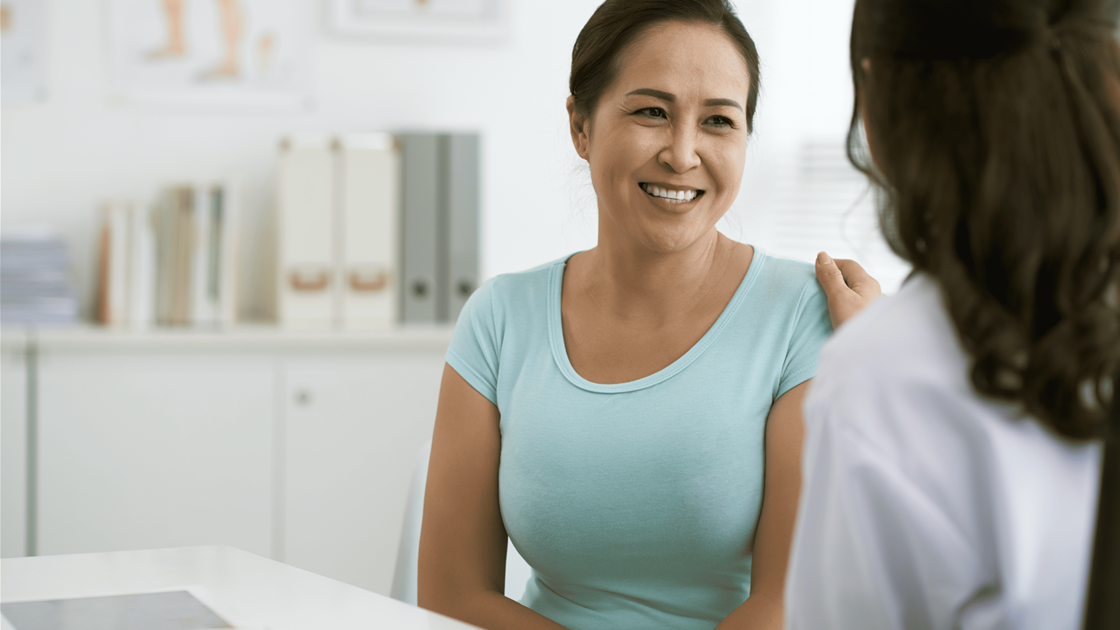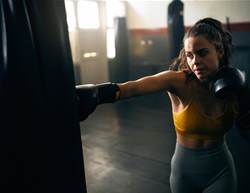For many breast cancer survivors, finishing treatment marks the beginning of another journey: learning how to live well after cancer. It’s a time often filled with questions—about what to eat, how to exercise, and how to feel like yourself again.
But according to Dr Cindy Tan, Cancer Survivorship Senior Research Fellow at the University of Sydney and a 2025 Breast Cancer Trials Clinical Fellow, lifestyle habits like diet and physical activity don’t just support recovery—they’re essential.
“Current evidence shows that being physically active and following a healthy eating pattern can improve health outcomes for breast cancer survivors,” says Dr Tan. “That includes better body composition, symptom management, and overall quality of life.”
So, what does that actually look like in everyday life?
A Balanced Routine—Not a Bootcamp
Dr Tan recommends aiming for 150 minutes of moderate-intensity aerobic exercise (like brisk walking or cycling) or 75 minutes of vigorous activity each week, alongside two to three sessions of resistance exercise. For diet, it’s about following the Australian Dietary Guidelines: whole foods, balanced portions, and being mindful of total energy intake—especially from energy-dense but nutrient-poor foods.
It’s Not Always Easy—Here’s Why
Dr Tan’s current research focuses on understanding the barriers that prevent survivors from participating in healthy lifestyle interventions. The reasons are wide-ranging. “Fatigue, uncertainty, lack of motivation, family responsibilities, financial constraints—all of these can affect someone’s ability to stick to new habits,” she explains.
These barriers can be physical (like lingering treatment side effects), social (think: a packed family calendar), or environmental (such as limited access to gyms or fresh produce). Understanding what’s getting in the way is the first step in finding a solution.
Start Small, Stay Consistent
The good news? Even small, realistic changes can make a big difference. Dr Tan says incorporating movement into your routine—like swapping the lift for stairs or taking short walks throughout the day—can help build momentum. “People tend to maintain habits better when they work them into existing routines,” she notes. That could mean a short run with the kids in the evening, gym sessions before work, or scheduling walking catch-ups with a friend.
Personalised Eating Patterns Work Best
When it comes to diet, Dr Tan says there’s no one-size-fits-all solution. What works is awareness. “Understand your own eating patterns,” she advises. “If you tend to snack after dinner, identify what’s driving that—boredom, routine, or something else—and try to address the root cause.”
Cancer and nutrition myths are common—and potentially harmful. “There’s no evidence that sugar ‘feeds’ cancer or that soy increases breast cancer risk,” Dr Tan clarifies. “And no specific diet can cure cancer. Unless your doctor or dietitian advises otherwise, the goal should be a balanced eating pattern that supports your overall health.”
She also challenges the idea that rest is always best. “Feeling fatigued shouldn’t be a reason to avoid exercise. In fact, gentle, regular activity can actually help reduce cancer-related fatigue.”
When to Start Your Recovery Plans? Sooner Than You Think
Many patients wonder when it’s safe to start focusing on lifestyle changes. Dr Tan’s answer is simple: as early as possible. “We have strong evidence that exercise and healthy eating during treatment are not only safe but beneficial. If you’re unsure, speak to your GP, who can refer you to an accredited exercise physiologist or dietitian.”
More Than Just Habits—It’s a Path Back to You
There’s no universal timeline or roadmap for recovery after breast cancer. But what Dr Tan’s research underscores is that small, supported steps—tailored to your life, your body, and your values—can be transformative.
“Structured interventions can help, but even just understanding what’s holding you back can lead to meaningful change,” she says.
For those seeking more guidance, education, or connection, Dr Tan will be among the speakers featured in Breast Cancer Trials’ 46th Annual Scientific Meeting this 23-26 July in Hobart, Tasmania. The event gathers over 400 researchers, clinicians, and medical professionals across Australia and New Zealand to share updates on trials, treatment breakthroughs, and next-generation care.



.jpg&h=90&w=90&c=1&s=1)






